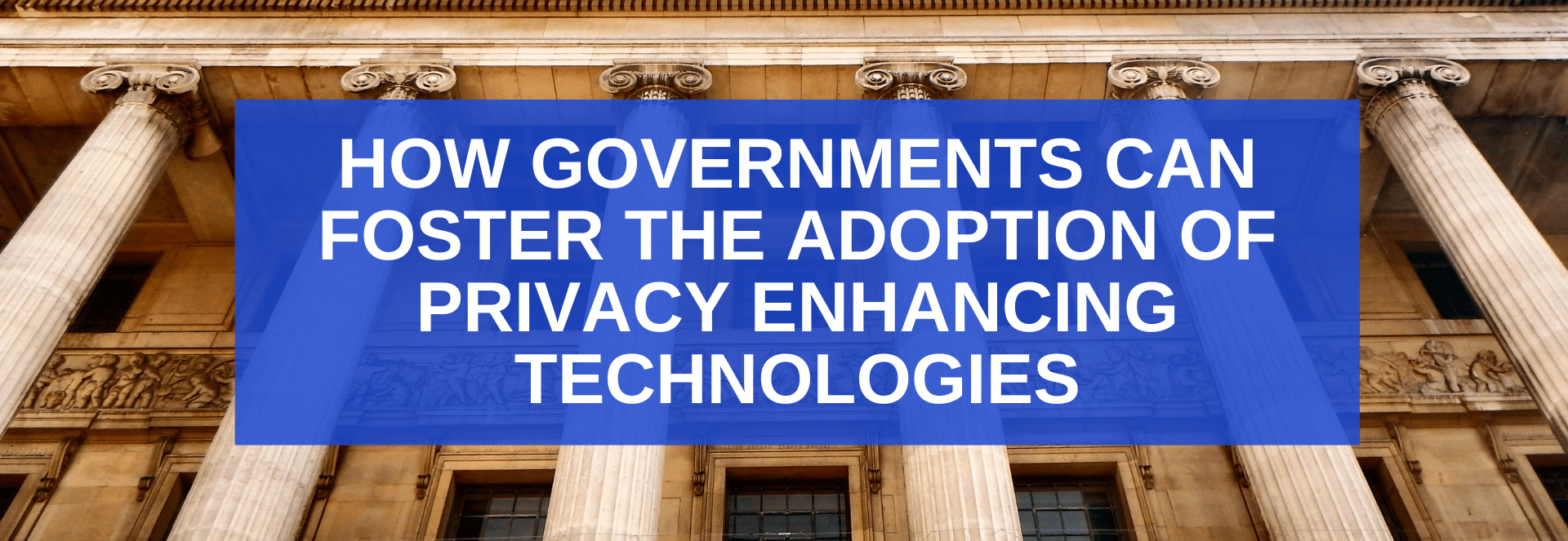
How can governments aid in fostering the adoption of Privacy Enhancing Technologies (PETs)? In this blog post we discuss 3 different ways that governments can help: regulation, new and better technologies, and sponsorship.
Regulation Driving the Adoption of PETs
Adoption of new technology is driven by need, and the emerging need for Privacy Enhancing Technologies (PETs) is becoming increasingly evident as the regulatory landscape continues to address the explosion of the data economy. Regulations like the Health Insurance Portability and Accountability Act (HIPAA), the General Data Protection Regulation (GDPR), and the California Consumer Privacy Act (CCPA) address the need for data protection but also provide roadblocks to fully utilizing the insights generated from sensitive data. Out of this need, the market niche for PETs is born.
One field where this need is extremely clear is in the financial industry. The current increased aggressiveness of US financial regulators to levy fines on banks internationally is inducing banks to find new and better ways to counter financial crimes like illicit drug trafficking or money laundering. This heavy hammer of financial penalties, coupled with the need to protect customer information, has driven banks to use privacy tech to avoid these fines. The push to be better has induced the adoption of PETs in several fields; several jurisdictions have already adopted policies to make the use of Privacy Enhancing Technologies easier. For example, the South Korean Credit Bureau allows financial institutions to freely test out PETs to see if they could help solve problems. South Korea is probably the most visible example of a government allowing the utilization of PETs, free of friction, but there are ongoing conversations happening in various countries.
New and Better Technology Driving the Adoption of PETs
Improved performance of privacy tech also makes the adoption of these novel technologies more accessible and doable at scale. For example, improved software like the recently released OpenFHE makes Homomorphic Encryption (HE) more attainable for organizations because it is a production ready library. To further drive the adoption of PETs, governments and other organizations can invest in the standardization and production of libraries like OpenFHE.
Having an open-source library and industry standards reduces the perception of risk because anyone can go in and validate the cryptographic protocols. Also, standards give confidence about the maturity of these technologies. HE libraries have standards and protocols that they must adhere to, as defined by a community called homomorphicencryption.org. This industry push is a big part of aiding the adoption of PETs and is necessary for them to be fully accepted.
Government Sponsorship Driving the Adoption of PETs
Finally, governments can sponsor explicit projects that use PETs to give confidence to markets about the effectiveness and security of these technologies. One example of this is a project around a disease called Valley Fever, a fungal infection that typically occurs in the desert of the southwest United States and Mexico. It is caused by ingesting the fungal spores found in the soil in this region. Congressman Kevin McCarthy decided to fund the development of privacy tools to collaborate on local medical data surrounding Valley Fever. This was happening in communities that were typically against the sharing of medical data, and this project showed that protected data can stay private while being analyzed. Congress and regulators can help jumpstart the adoption of PETs by funding these technologies in government projects around prevalent use cases to show the world what PETs can really do for an organization and for the good of the world.
Government Plays a Crucial Role in Fostering the Widespread Adoption of PETs
PETs are going to become an integral tool in organizations that deal with sensitive information, and governments can help kickstart this process through regulation, promoting industry standards, and funding government projects. These technologies can do so much for the world, and we’ve only just scratched the surface of the possible use cases for powerful privacy tech tools.